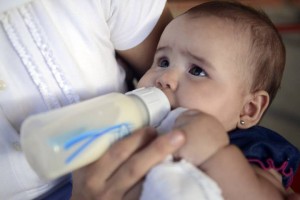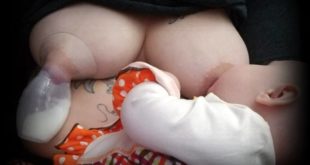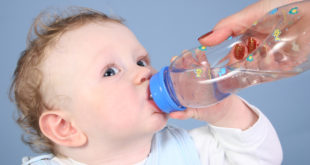Ask Anne…
 Question: How long can breast milk be stored and should it be stored in a bag or in a bottle?
Question: How long can breast milk be stored and should it be stored in a bag or in a bottle?
Answer: Breast milk can be safely stored in glass, hard plastic bottles, or polyethylene milk storage bags especially designed for storing human milk. Avoid any plastic containers made with bisphenol A (BPA),an estrogen-mimicking industrial chemical . In 2012, the FBA mandated that baby bottles and children’s drinking cups could no longer contain BPA.
Bags made especially for storing breast milk are designed to protect the nutrients and anti-infective qualities of human milk. They are sterile and don’t require any preparation before use. They are thicker than the bottle liners sold for use with disposable bottle systems, which may split during freezing and may cause a decrease in the antibodies and fat which adhere to the sides of the bags. They also take up less room in your freezer, and the milk thaws faster than milk frozen in hard containers.
You may want to freeze small amounts of milk in the freezer to have on hand for snack or cereal feedings when you just need an extra ounce or two. To use regular ice cube trays, clean the tray first with hot soapy water and air dry. Each cube is about an ounce, so you can pop out as many ounces as you want and put them into freezer bags. You can also buy special ice cube trays for storing milk that come with covers to seal the top tightly.
Whenever possible, give your baby fresh milk that has been refrigerated, not frozen. Freezing kills some of the live cells and antibodies in human milk, but not all of them. Since formula doesn’t have any of these anti-infective properties to begin with, frozen milk is still better for him than formula. If you are planning to use the milk within 8 days, refrigerate it rather than freezing it.
Because human milk is a living substance, its antibacterial properties help it stay fresh longer than formula. How long you can store it depends on the temperature.
The following guidelines apply to healthy, full term babies. Very sick or premature babies may need to follow stricter guidelines, so consult your baby’s doctor to find out his recommendations.
- Freshly expressed milk can be stored at room temperature (66-72 degrees) for up to ten hours.
- Colostrum or milk expressed within one week of delivery can be stored for twelve hours at room temperature.
- Fresh milk can be kept in the refrigerator for eight days. Store it toward the back.
- Fresh milk can be kept in a self-contained freezer compartment for 3-6 months, depending on how often the door is opened. Store it toward the back.
- Fresh milk can be stored in a separate chest type deep freeze for 6-12 months.
- Fresh milk can be stored in a cooler with ice packs for up to 24 hours.
- Milk that has been frozen and thawed can be kept in the fridge for 24 hours. Thawed milk should not be refrozen.
With all these guidelines, remember that fresh milk which has been stored at room temperature or in a cooler before being placed in the fridge or freezer may not keep as long.
When milk is frozen, it expands, so leave about an inch at the top of the container to allow room for expansion. Put only 2 to 4 ounces of milk in each container, or the amount your baby will take at a single feeding. Smaller quantities are easier to thaw, and you avoid waste this way.
The cream will rise to the top of the milk during storage. Gently swirl milk (do not shake) to mix before checking temperature and offering to baby.
The guidelines on storing breastmilk have been revised over the last few years. There is still a lot of old information out there, so don’t be surprised if the guidelines above tell you something different from what you have read in books or seen in a pamphlet that you picked up in your doctor’s office.
(November, 2015)
Anne Smith, IBCLC
Breastfeeding Basics
 Breastfeeding Basics
Breastfeeding Basics




